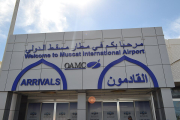
In a significant development indicating the enduring alliance between the Solomon Islands and Beijing, lawmakers have elected a pro-China candidate as their prime minister.
Jeremiah Manele secured the prime ministerial vote on Thursday, prevailing over his opponent Matthew Wale in a 31-18 vote count. Manele, who previously served as foreign minister in 2019, played a pivotal role in the Solomon Islands' decision to switch its diplomatic allegiance from Taiwan to China—a move that reverberated across the region.
Manele's victory suggests a continuation of the nation's close ties with China, including its discreet defense and security pact, which some opposition candidates had proposed revisiting or at least making public. However, analysts anticipate Manele adopting a more diplomatic approach towards the Solomon Islands' traditional Western partners, such as Australia, compared to his predecessor. He is also perceived as a more adept communicator.
The election outcome garnered attention from both China and Western powers, with Australian Prime Minister Anthony Albanese expressing his congratulations and eagerness to collaborate with the new leader.
The prime ministerial vote follows national elections in April, with leadership determined by elected representatives in a subsequent poll. Former Prime Minister Manasseh Sogavare, who opted not to enter the race following his party's underwhelming performance in the general election, endorsed Manele as the party's candidate.
During his tenure, Sogavare oversaw a surge in Chinese investment in the Solomon Islands, contributing to his polarizing status. Standing alongside Manele after his victory, Sogavare emphasized the importance of prioritizing the interests of the country and its people.
Manele pledged to uphold the democratic process and work towards enhancing the economic conditions for Solomon Islanders, many of whom face challenges accessing basic services amid widespread poverty.
With approximately 700,000 inhabitants spread across numerous islands, the Solomon Islands grapple with infrastructure deficiencies and socioeconomic disparities, highlighting the pressing need for governmental initiatives aimed at improving livelihoods across the archipelago. Photo by Leocadio Sebastian, Wikimedia commons.







































